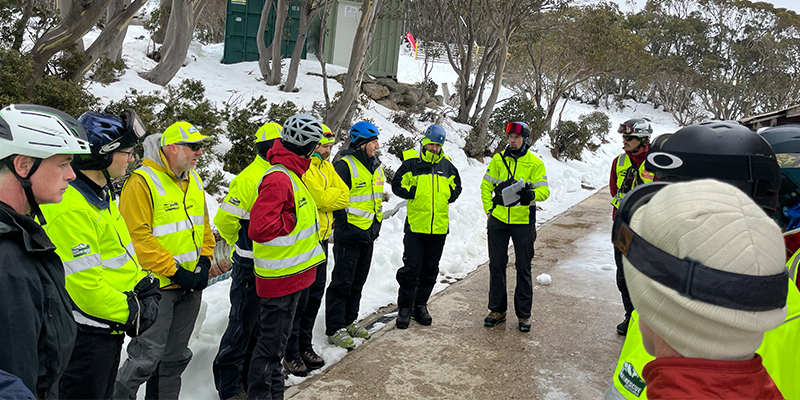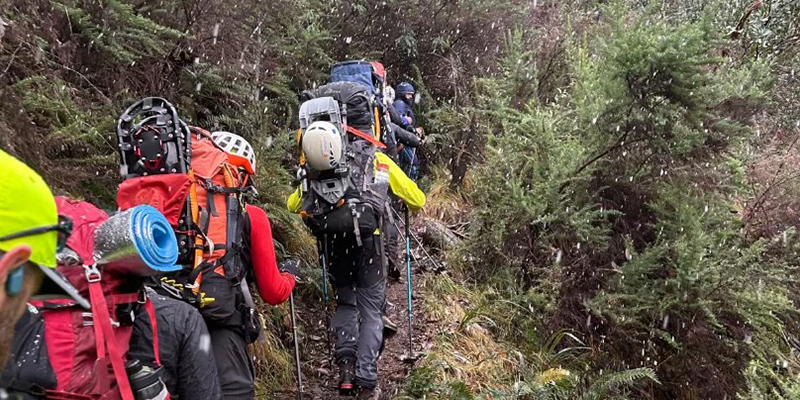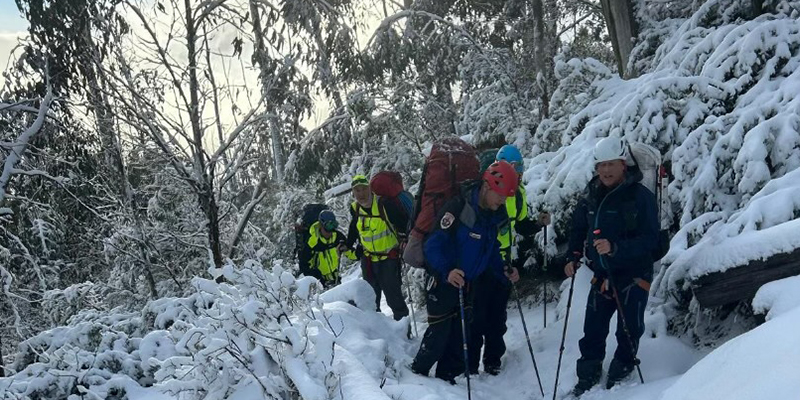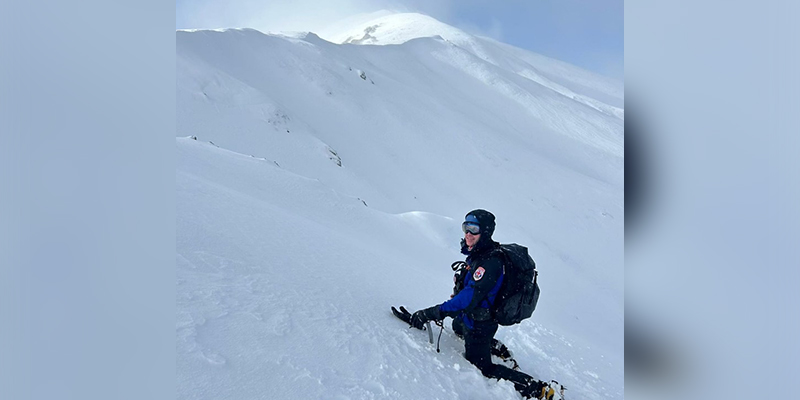Paramedics’ race against time to save hiker
August 27, 2024in News
Ambulance Victoria (AV) Wilderness Response Paramedics braved extreme weather conditions near the summit of the state’s third highest peak last month to save a stranded hiker.

The rescue saw Ambulance Victoria Wilderness Paramedics work alongside other agencies.
The 36-year-old male was hiking to the summit of Mount Feathertop when conditions worsened and he became trapped in loose snow.
After staying in a snow trench overnight, the hiker called emergency services for urgent help, prompting an interagency response.
The deteriorating weather, falling snow and low cloud meant the air ambulance helicopter (HEMS) was unable to safely access the patient, resulting in crews heading off on foot.
Working alongside Victoria Police Search and Rescue, SES and Bush Search and Rescue Volunteers, AV Wilderness Response Paramedics hiked 10 kilometres up the mountain while carrying more than 17 kilograms of equipment.

Wilderness Paramedics hiked for 10 kilometres before reaching the patient.
AV Wilderness Response Paramedic Tom Cavanagh said the rescue was a race against time.
“We were aware of the significant snow fall but for us the weather wasn’t so much the concern because we are trained to handle all conditions, it was whether we would be completing the rescue overnight,” he said.
“At nighttime a rescue like this becomes exponentially more dangerous given the terrain.
“It was lucky we are very experienced and had people with local knowledge who knew the area really well.”

Wilderness Paramedics hiked through thick snow and difficult terrain.
The patient was found sheltering in a small snow cave and was immediately treated for hypothermia before being taken down the mountain.
AV Wilderness Response Paramedic Ian Ross also responded to the case and said it was the quick thinking of Alpine Senior Team Manager Jon Hopkins that meant the difference between life and death.
“Local knowledge is extremely important on these cases and using his expertise, Jon decided to go up the mountain earlier while there was more daylight,” he said.
Using specialist equipment, navigation and advanced risk assessment, crews guided the patient safely down the mountain where he was then transported to hospital.

Wilderness Paramedics braved heavy snow fall last month to rescue a stranded hiker.
Tips to stay safe while hiking:
• Consider learning first aid and CPR, and tell someone where you’re going and when you plan to return. This can be done by filling out a trip intention form and leaving it with a friend or family member.
• Be sure to bring enough water and food, and anything else you need to stay safe such as matches, a torch and sunscreen.
• Know your limits and don’t embark on challenges beyond your skill set.
• Be prepared for weather conditions to change and be aware there may be the potential risk of hypothermia and heatstroke.
• Download the EmergencyPlus app which has a built-in GPS function to help a caller provide call takers with location details. The What3Words location function works offline so it can be used in remote areas with poor data connections as well.
• Download the VicEmergency app to be notified of incidents and warnings for your area.
